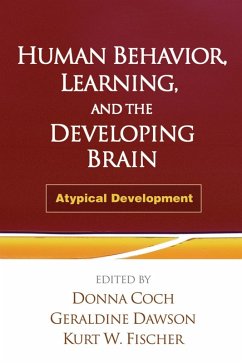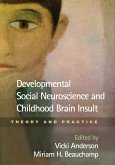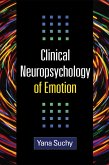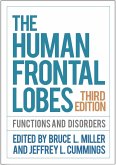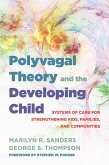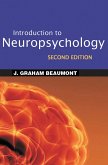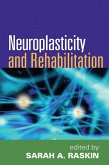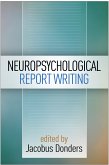Donna Coch, EdD, is Assistant Professor in the Department of Education at Dartmouth College. She earned a doctoral degree from the Harvard University Graduate School of Education and conducted postdoctoral research at the University of Oregon. Dr. Coch's research focuses on what happens in the brain as children learn how to read, particularly in terms of phonological and orthographic processing. A goal of both her research and teaching is to make meaningful connections between the fields of developmental cognitive neuroscience and education. Geraldine Dawson, PhD, is the William Cleland Distinguished Professor of Psychiatry and Behavioral Sciences, Professor of Pediatrics, and Professor of Psychology and Neuroscience at Duke University, and is founding Director of the Duke Center for Autism and Brain Development. She also directs the Duke NIH Autism Center of Excellence. A child psychologist and researcher, Dr. Dawson has published more than 400 articles and chapters and 13 books on early autism detection and intervention and brain development. Her studies have been recognized as among the top 20 annual advances in autism research by the National Institutes of Health 13 times. Dr. Dawson has served as president of the International Society for Autism Research (INSAR) and was the first Chief Science Officer for Autism Speaks, the largest autism science and advocacy organization. She is a member of the American Academy of Arts and Sciences and a Fellow of the American Psychological Association, the Association for Psychological Science, and INSAR, and has received numerous awards for her contributions to research. She is ranked in the top 1% of Clarivate Analytics Highly Cited Researchers. Kurt W. Fischer, PhD, is Charles Bigelow Professor of Education and Human Development at the Harvard University Graduate School of Education and founder and director of the program in Mind, Brain, and Education. He studies cognitive and emotional development from birth through adulthood, combining analysis of the commonalities across people with the diversity of pathways of learning and development. Dr. Fischer is the author of several books and over 200 scientific articles, and is founding president of the International Mind, Brain, and Education Society and editor of its journal Mind, Brain, and Education.
1. A Developmental Cognitive Neuroscience Approach to the Study of Atypical
Development: A Model System Involving Infants of Diabetic Mothers, Charles
A. Nelson 2. Development of Social Brain Circuitry in Autism, Geraldine
Dawson and Raphael Bernier 3. Brain Mechanisms Underlying Social Perception
Deficits in Autism, Kevin A. Pelphrey and Elizabeth J. Carter 4. Williams
Syndrome: A Model Developmental Syndrome for Exploring Brain-Behavior
Relationships, Helen Tager-Flusberg and Daniela Plesa Skwerer 5.
Triangulating Developmental Dyslexia: Behavior, Brain, and Genes, Elena L.
Grigorenko 6. Typical Reading Development and Developmental Dyslexia across
Languages, Usha Goswami 7. Neurocognitive Correlates of Developmental
Verbal and Orofacial Dyspraxia, Frederique Liegeois, Angela Morgan, and
Faraneh Vargha-Khadem 8. Relation between Early Measures of Brain Responses
to Language Stimuli and Childhood Performance on Language and
Language-Related Tasks, Dennis L. Molfese, Victoria J. Molfese, and Peter
J. Molfese 9. Number Sense and Developmental Dyscalculia, Anna J. Wilson
and Stanislas Dehaene 10. Central Nervous System Substrates of Impulsivity:
Implications for the Development of Attention-Deficit/Hyperactivity
Disorder and Conduct Disorder, Lisa M. Gatzke-Kopp and Theodore P.
Beauchaine 11. Social Regulation of the Adrenocortical Response to Stress
in Infants, Children, and Adolescents: Implications for Psychopathology and
Education, Emma K. Adam, Bonnie Klimes-Dougan, and Megan R. Gunnar 12.
Child Maltreatment and the Development of Alternate Pathways in Biology and
Behavior, Catherine C. Ayoub and Gabrielle Rappolt-Schlichtmann 13.
Corticolimbic Circuitry and Psychopathology: Development of the
Corticolimbic System, Francine M. Benes

